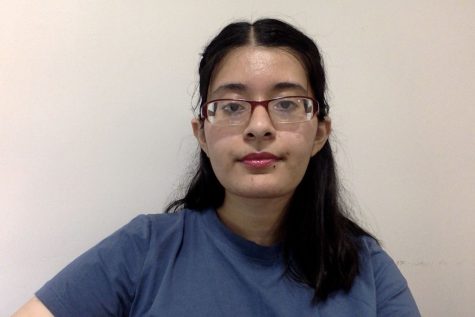Baruch ranks No. 170 in math competition
March 18, 2022
Baruch College ranked 170 out of the 427 institutions that participated in the 82nd William Lowell Putnam mathematical competition last year.
Three Baruch seniors participated in the competition, which took place on Dec. 4: Danyil Blyschak, Devon Lall and Jean Pulla.
The Putnam is known as one of the most challenging mathematical exams. Despite this, the participants said they were eager to take it.
“[The exam] really challenges you intellectually,” Pulla said. “I really wanted to be able to challenge myself and I wanted to be able to perform well.”
With the national median score being only 0 or 1 out of 120 possible points, Lall was shocked to learn his score.
“So when I went in, I basically took it as like a, ‘Oh this is my last year, I might as well. This would be really cool to talk about,’” he said. “I went in just expecting to get a 0. So when I saw that I got a 5, I mean I loved it.”
Blyschak was the first student to be awarded the Victor Istratov prize as Baruch’s top Putnam scorer.
“I feel like I could’ve done better but in terms of individual performance I am proud of myself,” he said. “Because I did improve from last year technically and I definitely felt more comfortable taking it.”
He added that while he is proud of Baruch’s participation in the competition, he was not able to answer some of the problems despite being very close. He said that was disappointing.
While not everyone taking the class is obligated to participate in the exam, the three took the MTH 4005 course in order to prepare for the Putnam.
Titled the “Problem-Solving Seminar,” MTH 4005 is a three-hour course offered to those interested in learning problem-solving methods and mathematical proofs. The course also reviews past Putnam exams in class.
“Many students take it just out of curiosity,” Pablo Sobéron, an assistant professor who teaches MTH 4005, said in an email interview. “And some that intend to participate in the competition. This way Baruch students that want to take the Putnam can do so with confidence.”
Sobéron was also glad to have the three participants in his class.
“All three enjoy working on hard problems and are very talented,” he said. “I was luck[y] to have them as students.”
The students had great things to say about MTH 4005 and Sobéron.
“He was really passionate about problem-solving and it really reflects on the way he teaches,” Pulla said. “He wants you to be able to perform well.”
Lall also felt that Sobéron’s past experience participating in mathematical exams made the class better.
“He basically structured some of the problems around his own experience in competitions,” he said. “He was able to give us like analogies and things of that sort which really brought into perspective what I was learning.”
As a financial mathematics major, Blyschak feels the competition can be a great learning experience for those pursuing a similar degree.
“If you have a quantitative inclination, you have like that curiosity about math, I would definitely encourage you to take it,” he said.
Sobéron also shared that the competition is a great opportunity for people in various majors.
“It’s the largest undergraduate mathematic[s] competition in the US and Canada, so it’s highly recognizable,” he said. “This is both for people in mathematics and for people in finance.”
He added that having problem-solving experience through the Putnam competition can be great for those looking to apply to quantitative finance firms.


![[Math Comp] -](https://theticker.org/wp-content/uploads/2022/03/Math-Comp-Courtesy-of-Devon-Lall-Danyil-Blyschak-and-Jean-Pulla-in-order-of-appearance-900x334.jpg)




